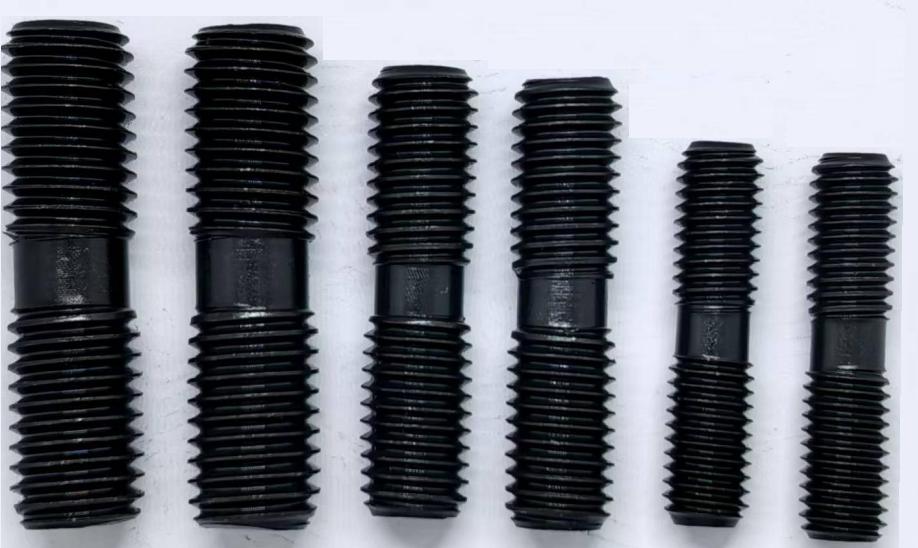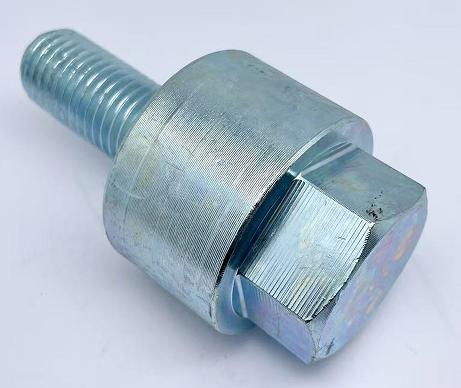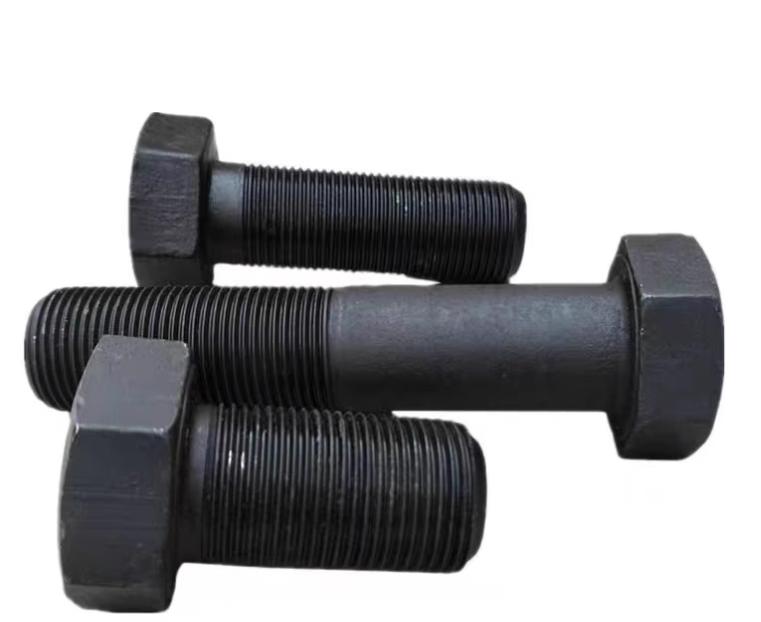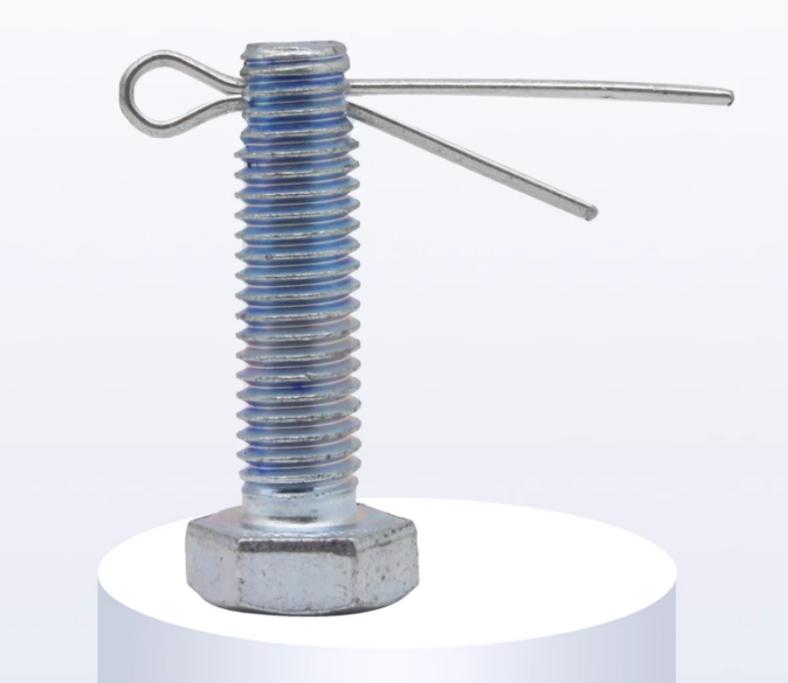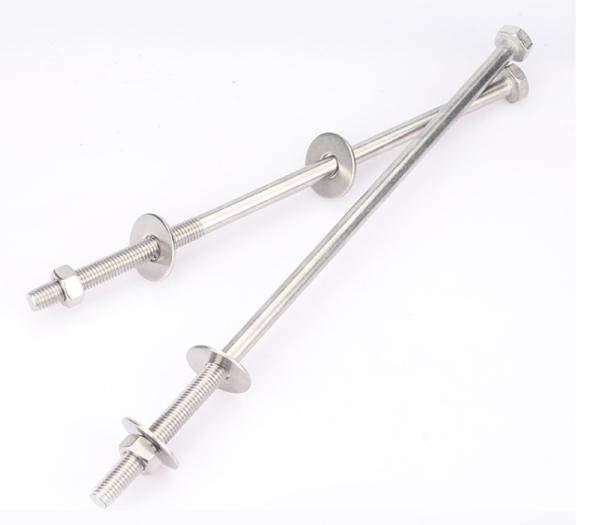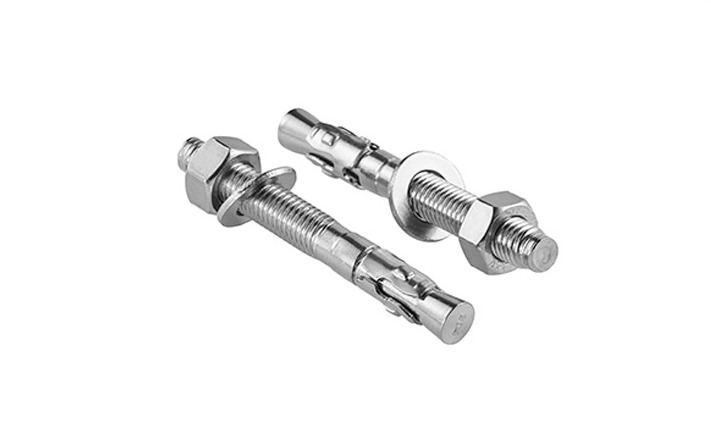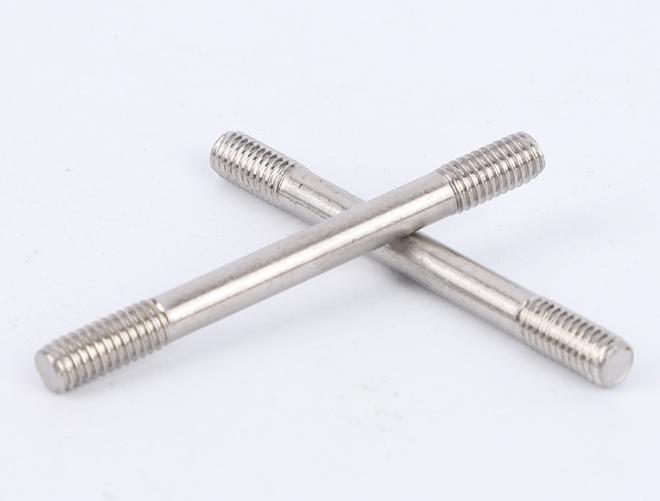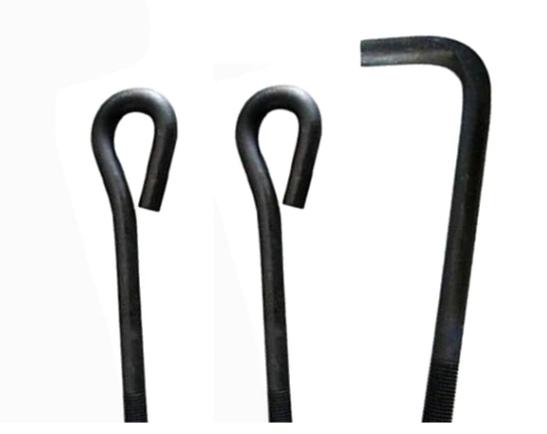What are Different Types of Hex Bolts?
Table of Contents
Hex bolts come in various types, each designed to meet specific needs depending on the materials, environment, and load-bearing requirements. In this article, we will explore the different types of hex bolts, their uses, and key considerations for selecting the right one.

What are Hex Bolts
Hex bolts are fasteners with a six-sided (hexagonal) head designed to be tightened or loosened with a wrench or socket. They are typically made of steel, stainless steel, or alloy materials and feature either partial or full threading along their shaft. Hex bolts are commonly used in construction, machinery, automotive, and other industrial applications for securely fastening components together. Their hexagonal head allows for a strong grip, making them ideal for applications that require high torque and stability.

Different Types of Hex Bolts
1. Standard Hex Bolts
Standard hex bolts, also known as hex cap screws, are the most common type of hex bolts. They have a flat, six-sided head and are typically used in applications where a high level of strength is required. These bolts are available in a wide range of sizes and materials, making them suitable for various structural and mechanical applications.
- Material Options: Steel, stainless steel, carbon steel, and alloy steel.
- Common Uses: Automotive, machinery, construction, and heavy-duty equipment.

2. Heavy Hex Bolts
Heavy hex bolts are similar to standard hex bolts but have a thicker and larger head, offering greater strength and load-bearing capacity. These bolts are designed for use in demanding applications, where high-strength fastening is crucial. The heavier design provides more surface area for torque application, making them ideal for large, heavy equipment.
- Material Options: Steel, stainless steel, high-strength alloys.
- Common Uses: Structural steel, heavy construction, and industrial machinery.
3. Flange Hex Bolts
Flange hexagon bolts have a built-in flange under the head, which acts as a washer to distribute the load more evenly and prevent the bolt from loosening. The flange provides additional surface area to reduce the risk of damaging the surface of the material being fastened. These bolts are commonly used in applications where vibration resistance is important.
- Material Options: Steel, stainless steel, and corrosion-resistant materials.
- Common Uses: Automotive, HVAC systems, and machinery where vibration is a concern.

4. Hex Tap Bolts
Hex tap bolts are similar to standard hex bolts but have a fully threaded shaft. The threads extend from the head to the tip, allowing them to be inserted into pre-tapped holes in materials. This design allows for a more secure fastening in threaded applications. Tap bolts are often used in structural applications where external nuts are not required.
- Material Options: Steel, stainless steel, carbon steel.
- Common Uses: Heavy machinery, construction, and industrial equipment.
5. Hex Head Bolts with Serrated Flanges
Hexagon bolts with serrated flanges feature a serrated edge on the flange beneath the head. This serrated design provides a superior grip, helping to prevent the bolt from loosening due to vibration or external forces. They are often used in applications where a high level of vibration resistance is needed.
- Material Options: Steel, stainless steel, alloy steel.
- Common Uses: Automotive, aerospace, and equipment in vibration-prone environments.

6. Carriage Bolts with Hex Heads
Carriage bolts are typically used for fastening wood and metal materials. While they are designed with a round, smooth head, some variations feature a hexagonal head for easier tightening with a wrench or socket. These bolts typically have a square section beneath the head to prevent them from rotating once installed.
- Material Options: Steel, stainless steel, zinc-plated.
- Common Uses: Construction, furniture assembly, and wood-to-metal applications.

7. Stainless Steel Hex Bolts
Stainless steel hex bolts are corrosion-resistant fasteners that are widely used in environments exposed to moisture, chemicals, or extreme weather conditions. These bolts offer excellent resistance to rust and corrosion, making them ideal for marine, outdoor, and high-moisture applications.
- Material Options: 304 stainless steel, 316 stainless steel.
- Common Uses: Marine, chemical plants, food processing, and outdoor applications.

8. Grade 5 Hex Bolts
Grade 5 hex bolts are made of medium carbon steel and are heat-treated for strength. These bolts are designed for moderate strength applications and are commonly used in automotive and machinery construction. Grade 5 bolts have a tensile strength of 120,000 psi.
- Material Options: Medium carbon steel, alloy steel.
- Common Uses: Automotive, machinery, and structural applications requiring medium strength.
9. Grade 8 Hex Bolts
Grade 8 hex bolts are high-strength bolts made from carbon steel and alloy steel, often heat-treated to provide superior strength. These bolts are ideal for heavy-duty applications that require high tensile strength, such as in construction and automotive industries. They have a tensile strength of 150,000 psi, making them suitable for demanding environments.
- Material Options: Carbon steel, alloy steel.
- Common Uses: Heavy machinery, construction, and automotive industries.

10. Metric Hex Bolts
Metric hex bolts are fasteners that use metric sizing, and they are commonly used in countries where the metric system is standard. The dimensions of these bolts are defined by the diameter and thread pitch, rather than inches. Metric hex bolts can be found in various grades and materials, making them suitable for a wide range of applications.
- Material Options: Steel, stainless steel, alloy steel.
- Common Uses: International construction, automotive, and industrial applications.
11. Hex Lag Bolts
Hex lag bolts, also known as lag screws, are large, heavy-duty fasteners with a hexagonal head. They are commonly used for fastening wood to wood or wood to metal. The threads on lag bolts are coarse and designed to provide a strong grip in wood materials. The hex head allows for easy tightening with a wrench or socket.
- Material Options: Steel, stainless steel, zinc-plated steel.
- Common Uses: Decking, wood construction, and outdoor furniture.

Key Factors to Consider for Choosing the Right Type of Hex Bolts
This chart provides an easy-to-follow guide for selecting the right type of hex bolt based on key factors.
| Factor | Description | What to Consider |
| Material | The material influences the bolt’s strength, durability, and resistance to corrosion or wear. | – Stainless steel for corrosion resistance – Carbon or alloy steel for strength |
| Grade and Strength | The bolt grade specifies the tensile strength and load capacity of the bolt. | – Grade 5 (medium strength) – Grade 8 (high strength) – Heavy-duty or light-duty applications |
| Thread Type and Pitch | Threads determine how the bolt engages with the nut or material. | – Fine thread for precision – Coarse thread for general use – Metric vs. Imperial |
| Head Type | The head style affects how the bolt is tightened and the torque it can withstand. | – Standard hex for general use – Flanged hex for load distribution – Serrated flange for vibration resistance |
| Coating or Plating | Bolt coatings protect them from corrosion and wear, especially in harsh environments. | – Zinc plating for mild corrosion resistance – Cadmium or galvanized for heavy corrosion resistance |
| Environmental Conditions | Exposure to specific environments (moisture, chemicals, or extreme temperatures) can dictate the bolt type. | – Marine, outdoor, or chemical-resistant environments – High-temperature applications |
| Application Requirements | Different applications may require specific bolt features like vibration resistance or thread length. | – Vibration resistance for machinery – Full-threaded or partial-threaded for different fastening needs |
| Size and Length | The size and length of the bolt must match the components being fastened for a secure fit. | – Match bolt length to material thickness – Ensure correct diameter for the hole |

In summary, understanding the different types of hex bolts, their materials, and their applications will help ensure you select the right bolt for the job. Whether you’re working with high-strength materials or need corrosion resistance for outdoor applications, there is a hex bolt type suited to your needs.

